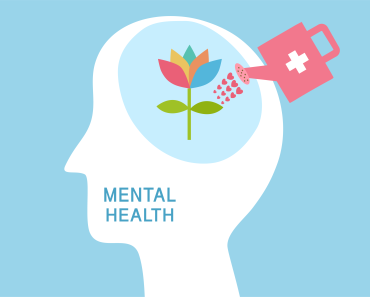In today’s fast-paced world, maintaining a healthy and reasonable diet is more crucial than ever. A balanced diet not only fuels your body with the necessary nutrients but also helps prevent chronic diseases, boosts mental health, and promotes overall well-being. This article explores the essentials of a healthy diet, practical tips for maintaining balanced nutrition, and the numerous benefits of eating well.
Understanding a Healthy Diet
A healthy diet includes a variety of foods that provide the nutrients your body needs to function correctly. These nutrients include carbohydrates, proteins, fats, vitamins, minerals, and water. The key to a healthy diet is balance, ensuring that you consume the right amounts of different nutrients.
Macronutrients
Carbohydrates: The primary source of energy for your body. Opt for complex carbohydrates like whole grains, fruits, and vegetables, which provide sustained energy and are rich in fiber.
Proteins: Essential for growth, repair, and maintenance of tissues. Include a variety of protein sources in your diet, such as lean meats, fish, beans, nuts, and dairy products.
Fats: Necessary for energy, cell function, and the absorption of fat-soluble vitamins. Focus on healthy fats from sources like avocados, nuts, seeds, and olive oil, while limiting saturated and trans fats.
Micronutrients
Vitamins: Vital for immune function, energy production, and bone health. Ensure you get a wide range of vitamins by eating a colorful variety of fruits and vegetables.
Minerals: Important for bone health, nerve function, and muscle contraction. Key minerals include calcium, potassium, and magnesium, which can be found in dairy products, leafy greens, and whole grains.

The Benefits of a Balanced Diet
Disease Prevention
A balanced diet can help prevent chronic diseases such as heart disease, diabetes, and obesity. Consuming nutrient-dense foods reduces the risk of these conditions by maintaining healthy body weight, lowering cholesterol levels, and regulating blood sugar.
Enhanced Mental Health
Nutrition has a direct impact on mental health. Diets rich in omega-3 fatty acids, found in fish, flaxseeds, and walnuts, are linked to lower levels of depression and anxiety. Additionally, a diet high in fruits, vegetables, and whole grains can improve cognitive function and reduce the risk of developing mental health disorders.
Improved Digestive Health
Fiber-rich foods, such as fruits, vegetables, and whole grains, promote healthy digestion by preventing constipation and reducing the risk of gastrointestinal issues. Probiotics found in yogurt and fermented foods also support a healthy gut microbiome.
Increased Energy Levels
Eating a balanced diet ensures a steady supply of energy throughout the day. Complex carbohydrates provide sustained energy, while proteins and fats offer long-lasting fuel. Avoiding excessive sugar and refined carbs helps prevent energy crashes and maintains stable blood sugar levels.
Practical Tips for Maintaining a Healthy Diet
Plan Your Meals
Meal planning is a practical way to ensure you consume a balanced diet. Plan your meals for the week, including a variety of foods from all food groups. This helps you avoid last-minute unhealthy food choices and ensures you have nutritious meals ready.
Portion Control
Understanding portion sizes is crucial for maintaining a healthy weight and preventing overeating. Use smaller plates, read food labels, and be mindful of serving sizes to control portions effectively.
Stay Hydrated
Water is essential for all bodily functions, including digestion, circulation, and temperature regulation. Aim to drink at least eight glasses of water a day, and more if you are physically active or live in a hot climate.
Limit Processed Foods
Processed foods are often high in unhealthy fats, sugars, and sodium. They can contribute to weight gain, heart disease, and other health issues. Focus on whole, unprocessed foods, and make meals from scratch whenever possible.
Include a Variety of Foods
Eating a wide variety of foods ensures you get all the necessary nutrients. Try to include different fruits, vegetables, proteins, and whole grains in your diet. Experiment with new recipes and foods to keep your meals exciting and nutritious.
Practice Mindful Eating
Mindful eating involves paying attention to what and how you eat. Eat slowly, savor each bite, and listen to your body’s hunger and fullness cues. This can help prevent overeating and make mealtimes more enjoyable.
Overcoming Challenges
Maintaining a healthy diet can be challenging due to busy schedules, limited access to healthy foods, and dietary preferences. Here are some strategies to overcome these challenges:
Busy Schedules: Prepare meals in advance and keep healthy snacks on hand. Use weekends to batch cook and freeze meals for the week.
Access to Healthy Foods: If fresh produce is not always available, opt for frozen or canned vegetables and fruits without added sugars or salt. Community gardens and farmers’ markets can also be good sources of fresh produce.
Dietary Preferences and Restrictions: Find healthy alternatives that fit your dietary needs. For example, if you are lactose intolerant, opt for lactose-free dairy products or plant-based milk.
Adopting a healthy and reasonable diet is a powerful way to enhance your well-being and prevent numerous health issues. By focusing on balanced nutrition, staying hydrated, and practicing mindful eating, you can achieve optimal health and vitality. Remember, small, consistent changes in your eating habits can lead to significant long-term benefits. Start today by incorporating more whole foods into your diet, planning your meals, and enjoying the journey to a healthier you.






